For individuals who’ve purchased a healthful crop of tomatoes rising, in the long term you’re constructive to search out out these large, juicy inexperienced caterpillars luckily munching on the leaves. They’re going to develop to astonishing sizes—as tons as 4 or 5 inches prolonged!—and get their resolve from the distinctive horn on their rear end that appears like a little bit of little little bit of spike (which, luckily, isn’t able to stinging).
There are actually two types of hornworms and plenty of people (along with utterly utterly completely different guides) mistake one for the alternative.
Tomato hornworms are the larval stage of the five-spotted hawkmoth (Manduca quinquemaculata). These caterpillars have a darkish blue or black horn, and inexperienced margins alongside a sequence of white Vs (chevrons).
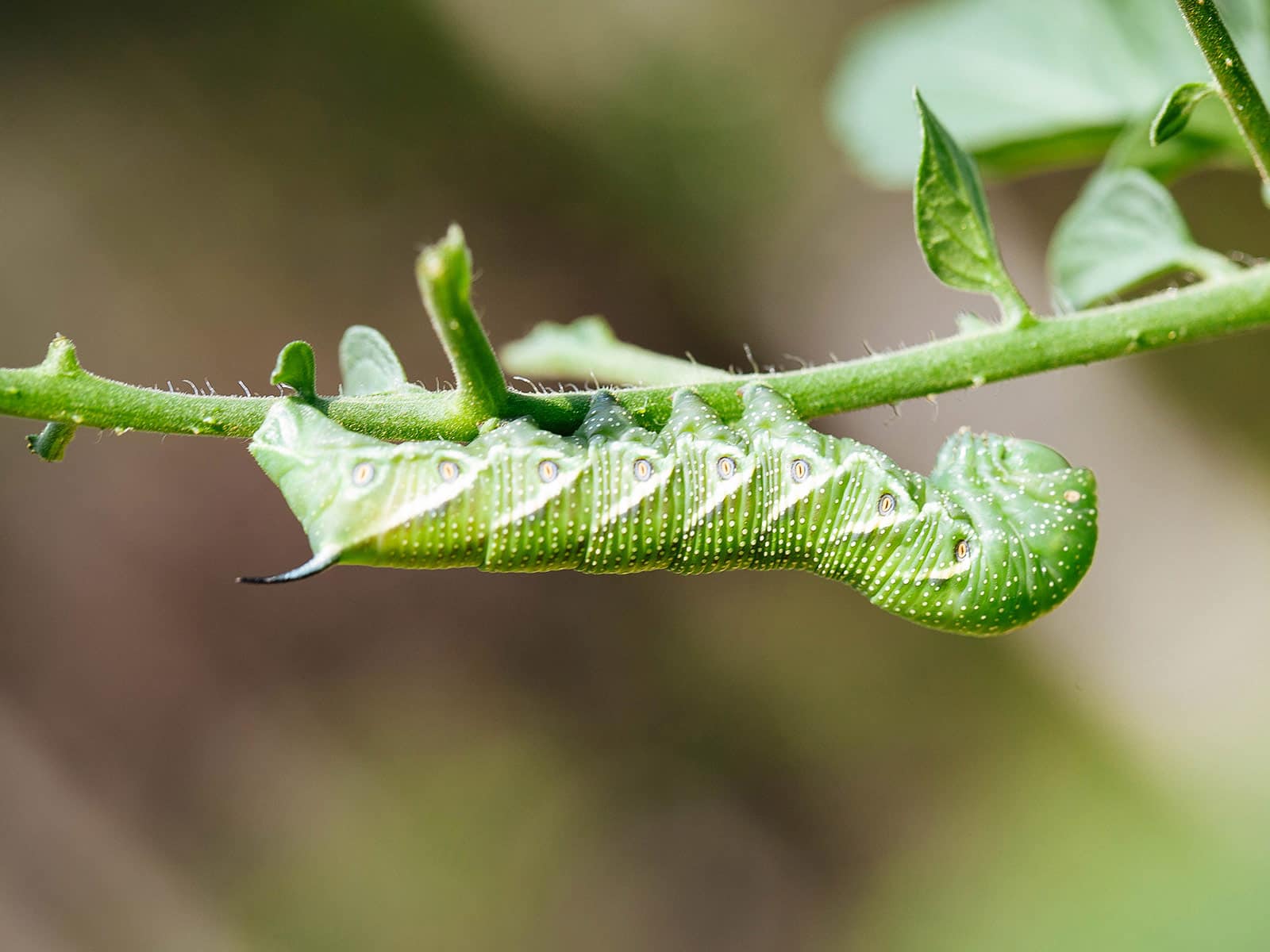

Tobacco hornworms are the larvae of the Carolina sphinx moth (Manduca sexta). These caterpillars have a pink horn and black margins alongside white diagonal stripes.
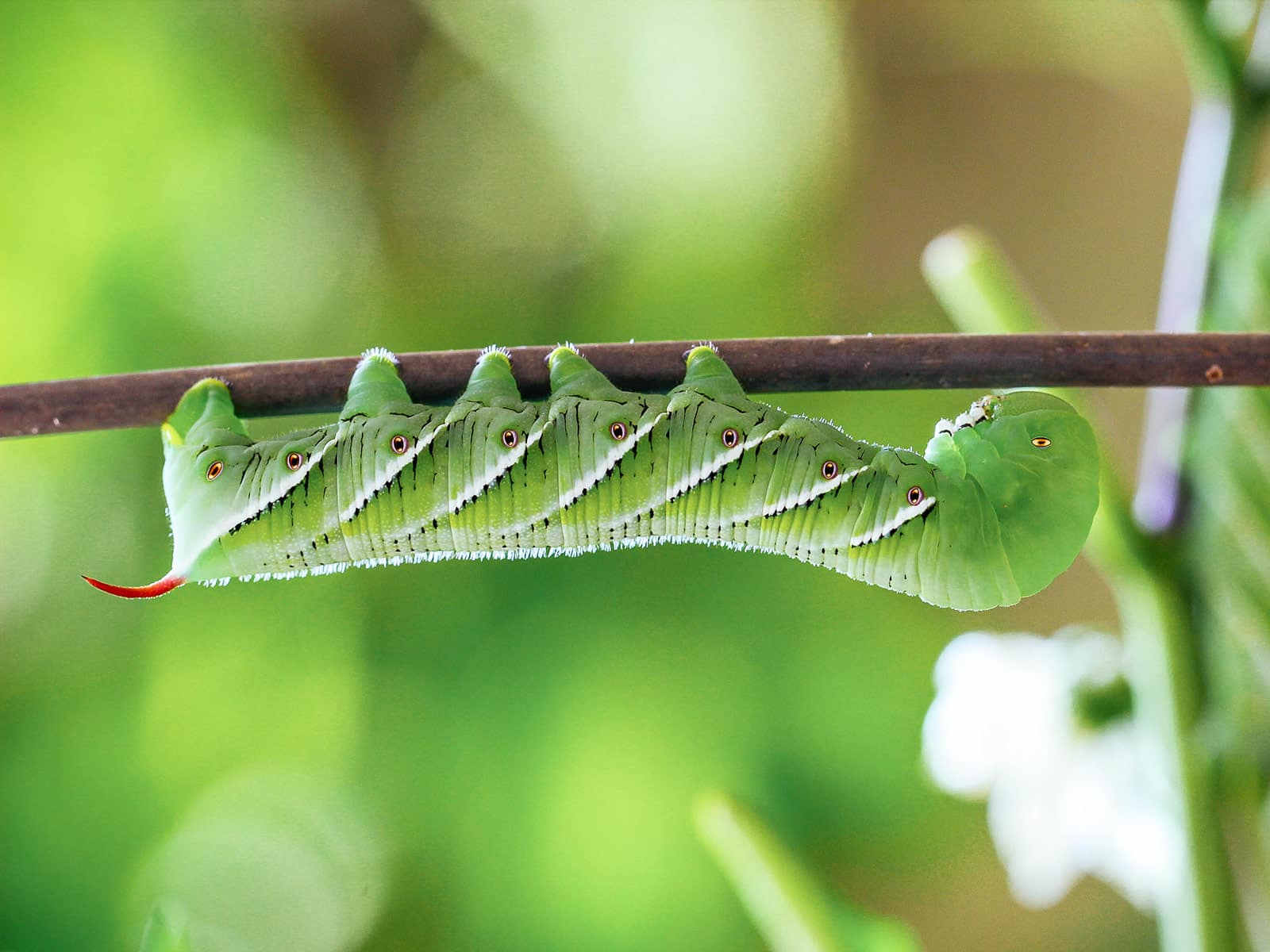

Hawkmoths and sphinx moths are often commonly known as hummingbird moths (and usually mistaken for hummingbirds at quick look) since they flit from flower to flower, feeding on nectar and pollen.
Be taught extra: These dramatic vibrant moths rival the wonderful thing about butterflies
Whichever hornworm you come all by way of, it’s no pal for individuals who’re a gardener. Every feed on tomatoes and utterly utterly completely different members of the nightshade family (along with tomatillos, peppers, eggplants, and potatoes) and if left unchecked, full-grown hornworms can decimate an entire plant inside days!
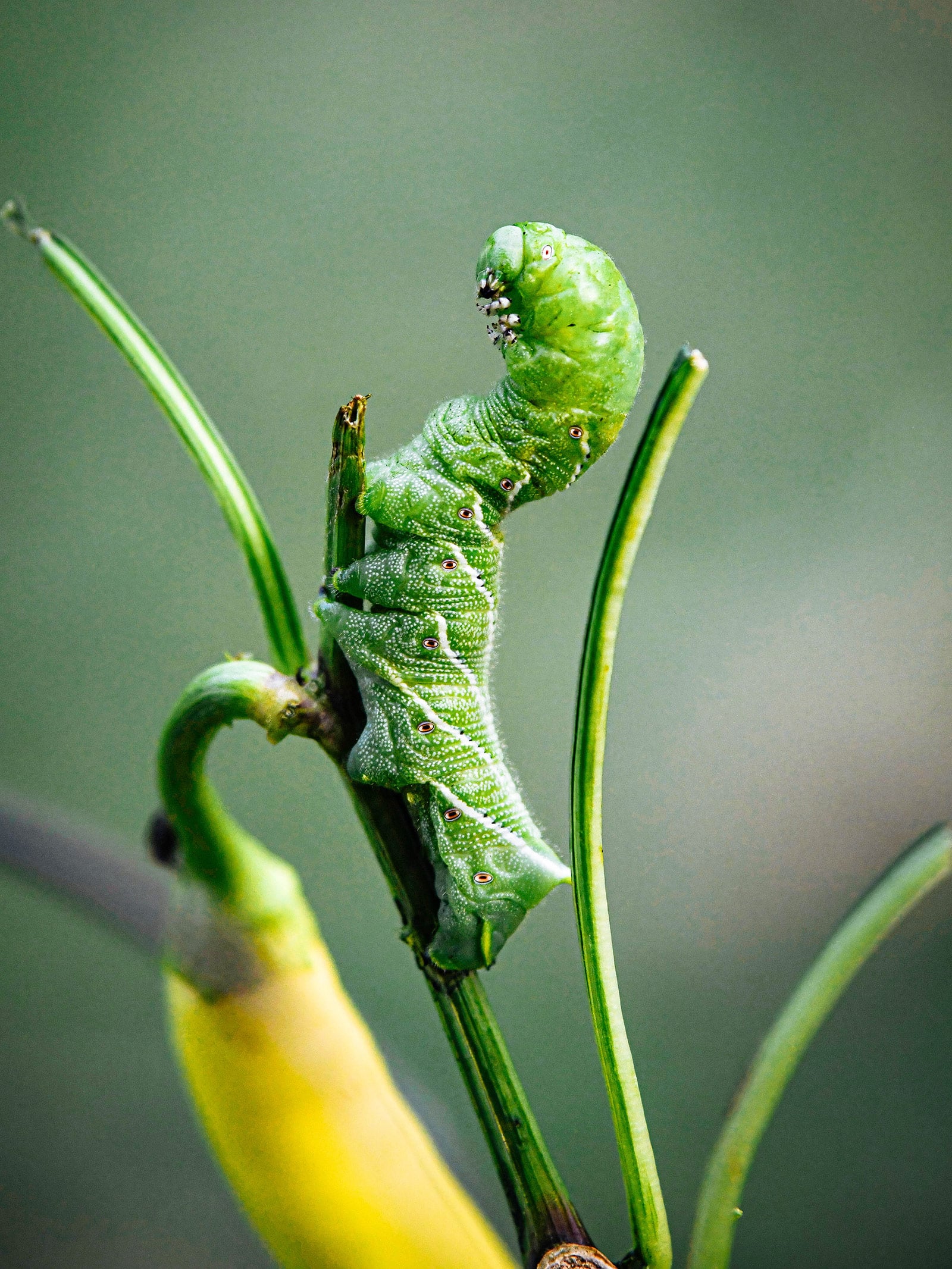

Their most voracious consuming happens all by way of their remaining week as caterpillars. As quickly as they’ve achieved off the foliage, they often swap on to the fruit.
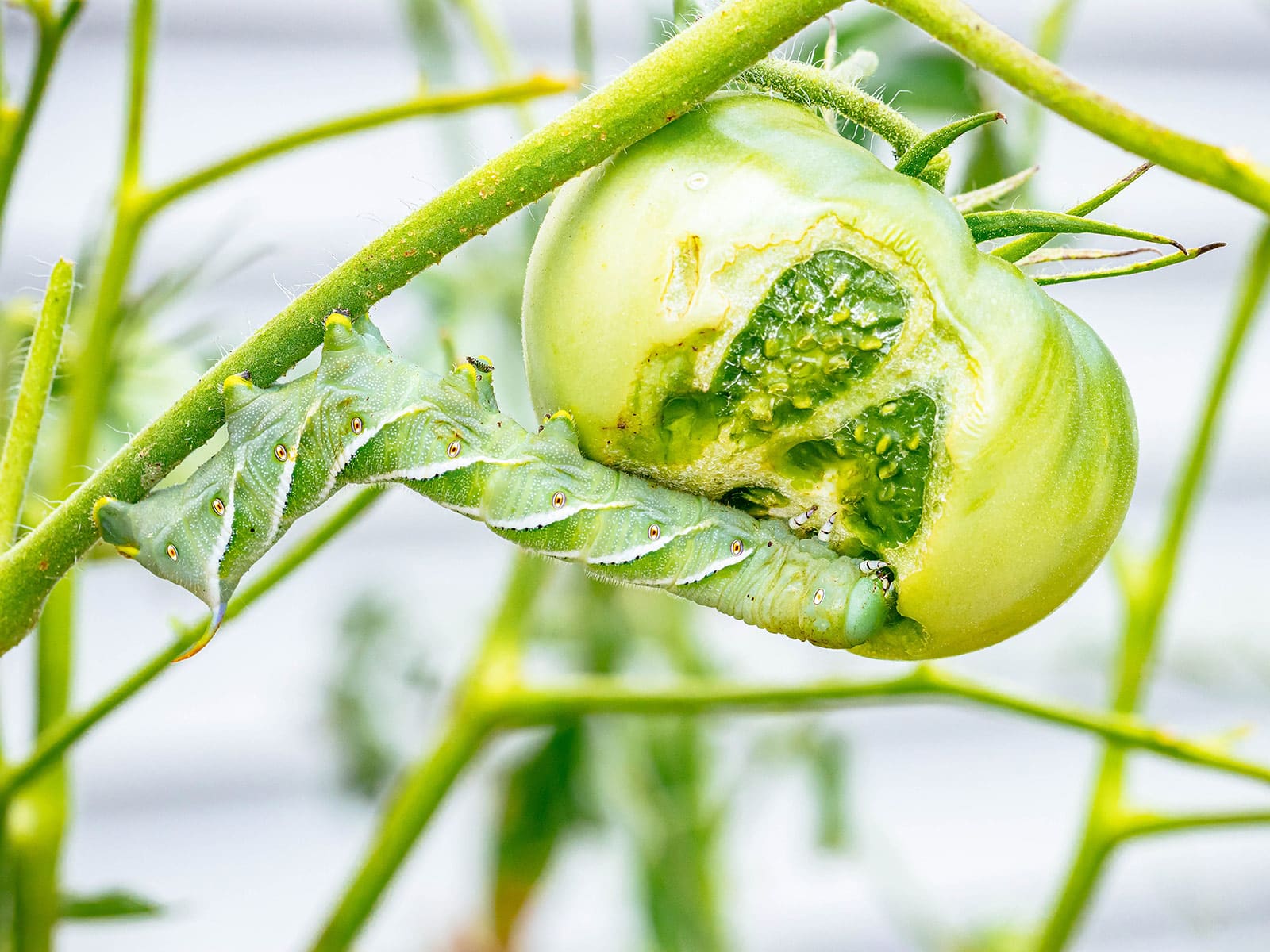

Hornworms are every simple to see (as quickly as you perceive what to hunt for) and simple to miss (as they tend to lurk on the undersides of leaves). For individuals who suspect hornworms are snacking in your crops, listed beneath are 4 simple strategies to position off them—for good—with out resorting to chemical controls.
Disclosure: For individuals who retailer from my article or make a purchase order order order order by one amongst my hyperlinks, I will acquire commissions on among the many many many merchandise I select to counsel.
What hornworm hurt appears to be like
First, are you constructive you have acquired hornworms? The first clue is also their excrement (often generally known as frass). Hornworm droppings are darkish inexperienced and barrel-shaped, and often appear as if tiny grenades scattered on the leaves or on the underside of your crops. The larger the droppings, the larger the caterpillar!
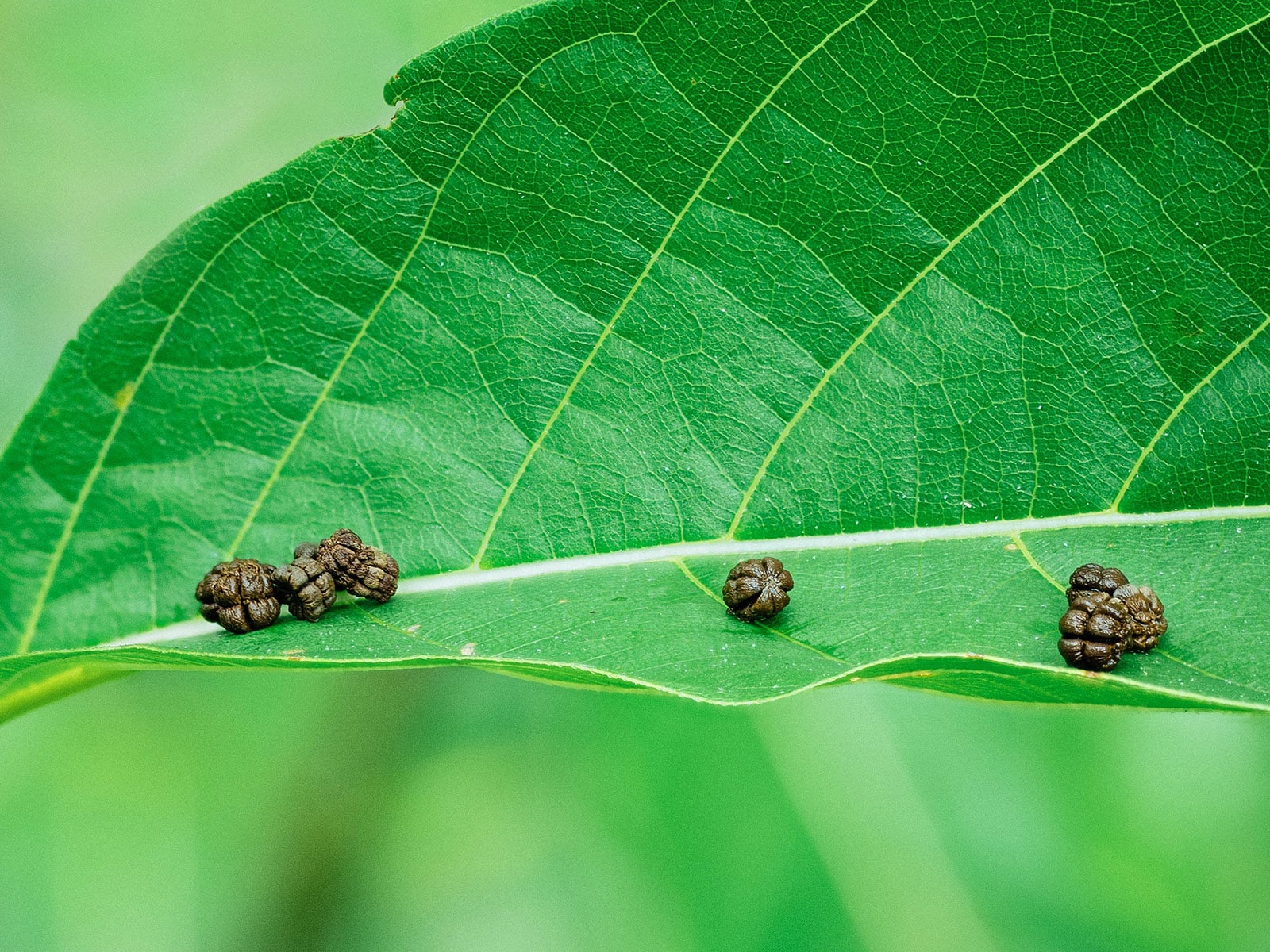

Secondly, try your leaves. For individuals who uncover missing tomato leaves or chewed-off stems, significantly on the concepts of branches, trace them as quickly as additional and you may additionally uncover a path of frass and—lastly—a hornworm camouflaged alongside a stem or the vein of a leaf.
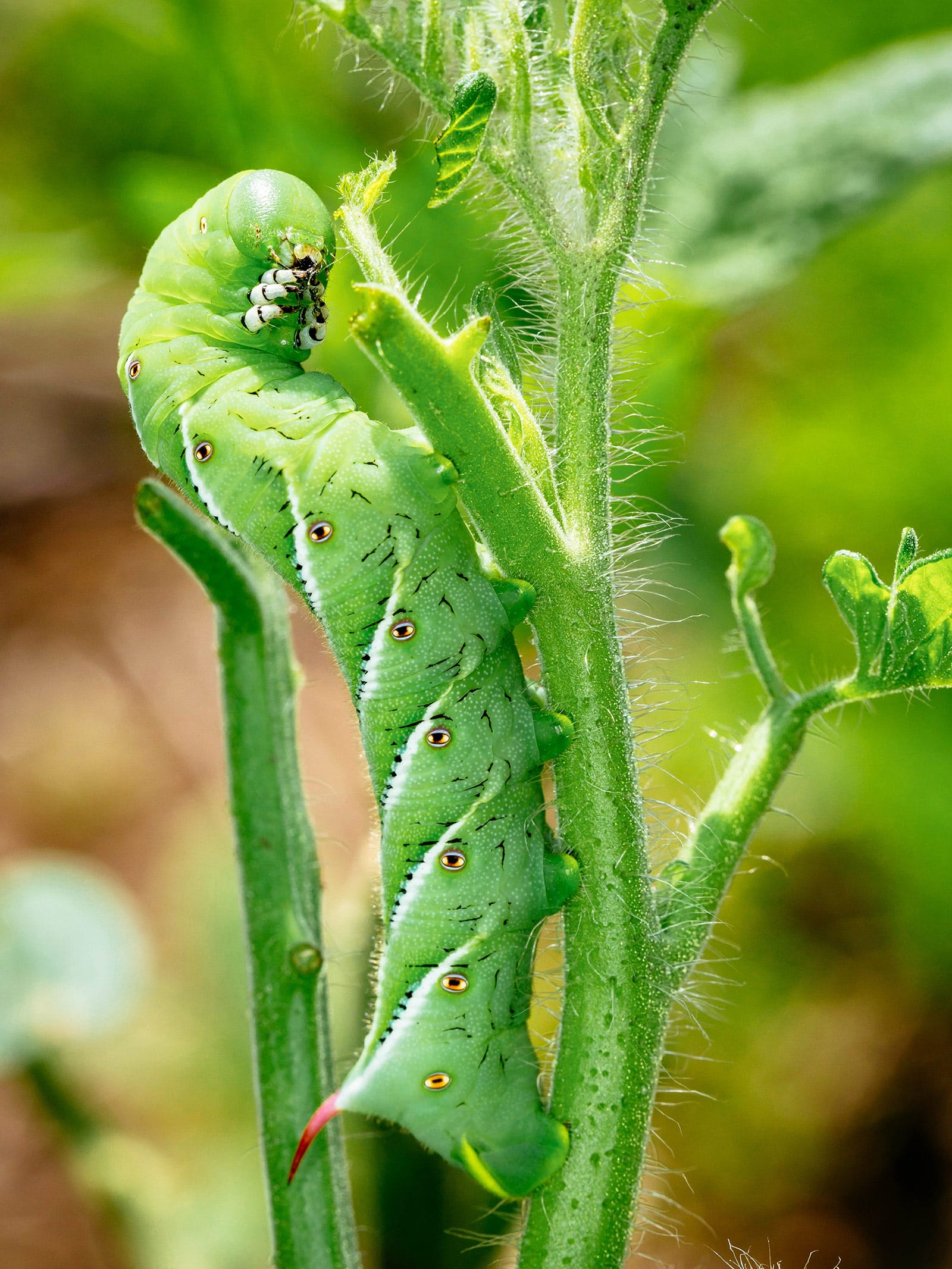

The proper and finest choice to administration these caterpillars?
Hand-pick hornworms as you see them
Resulting from their dimension, hornworms are simple to resolve on off and discard. They’re a powerful current of protein for chickens, for individuals who enhance your particular explicit individual flock at dwelling, nonetheless it is potential you will too merely drop the hornworms into soapy water to destroy them. (I maintain empty espresso cans and yogurt containers spherical for that operate.)
Hornworms are inclined to return as soon as extra out at dusk to feed, so you’ll flip it right correct proper right into a gratifying night time journey with this $12 flashlight.
Exit at night alongside collectively collectively along with your black-light flashlight and shine it slowly over your tomato crops. Hornworms will glow like little white reflector strips among the many many many many leaves, making them large simple to search out out.
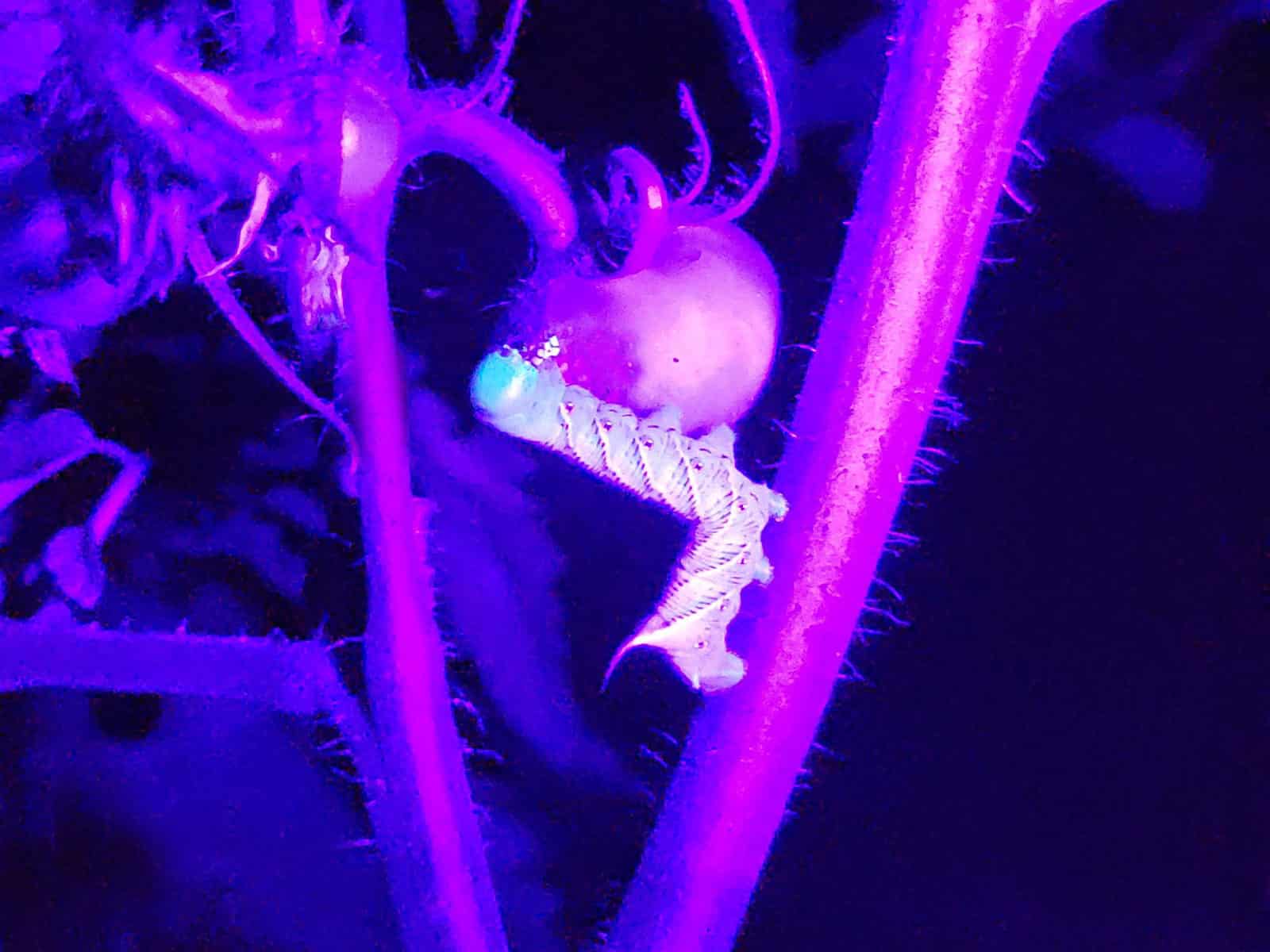

Take away them one after the choice and each smush them, drop them right correct proper right into a can of soapy water, or collect them in a jar to feed your chickens. (Don’t overlook to look at your utterly utterly completely different nightshade crops too.)
Do not forget that eggs may proceed hatch for pretty a few days after you’ve picked off every caterpillar, so repeat the “hunt” until you’re certain every hornworm is gone. In most climates, there’s only one interval per yr, nonetheless gardeners in warmth climates may even see a second interval in late summer season season.
Flip your yard right correct proper right into a haven for useful bugs
Tender-bodied hornworms have many pure enemies, along with ladybugs and inexperienced lacewings (whose larvae feed on the eggs and youthful caterpillars), braconid wasps (which parasitize caterpillars by laying eggs inside them), and paper wasps and yellowjackets (which collect newly hatched hornworms to feed their very personal larvae).
Analysis extra: The best approach to resolve frequent wasps in your yard
You can enchantment to those useful bugs to your yard by planting a limiteless variety of flowering crops, very like these all via the Apiaceae family (parsley, cilantro, fennel, dill, Queen Anne’s lace), Asteraceae family (chamomile, fleabane, goldenrod, sunflowers), and utterly utterly completely different umbellifers and simple, single-layered flowers, along with yarrow, sweet alyssum, cosmos, and coreopsis.
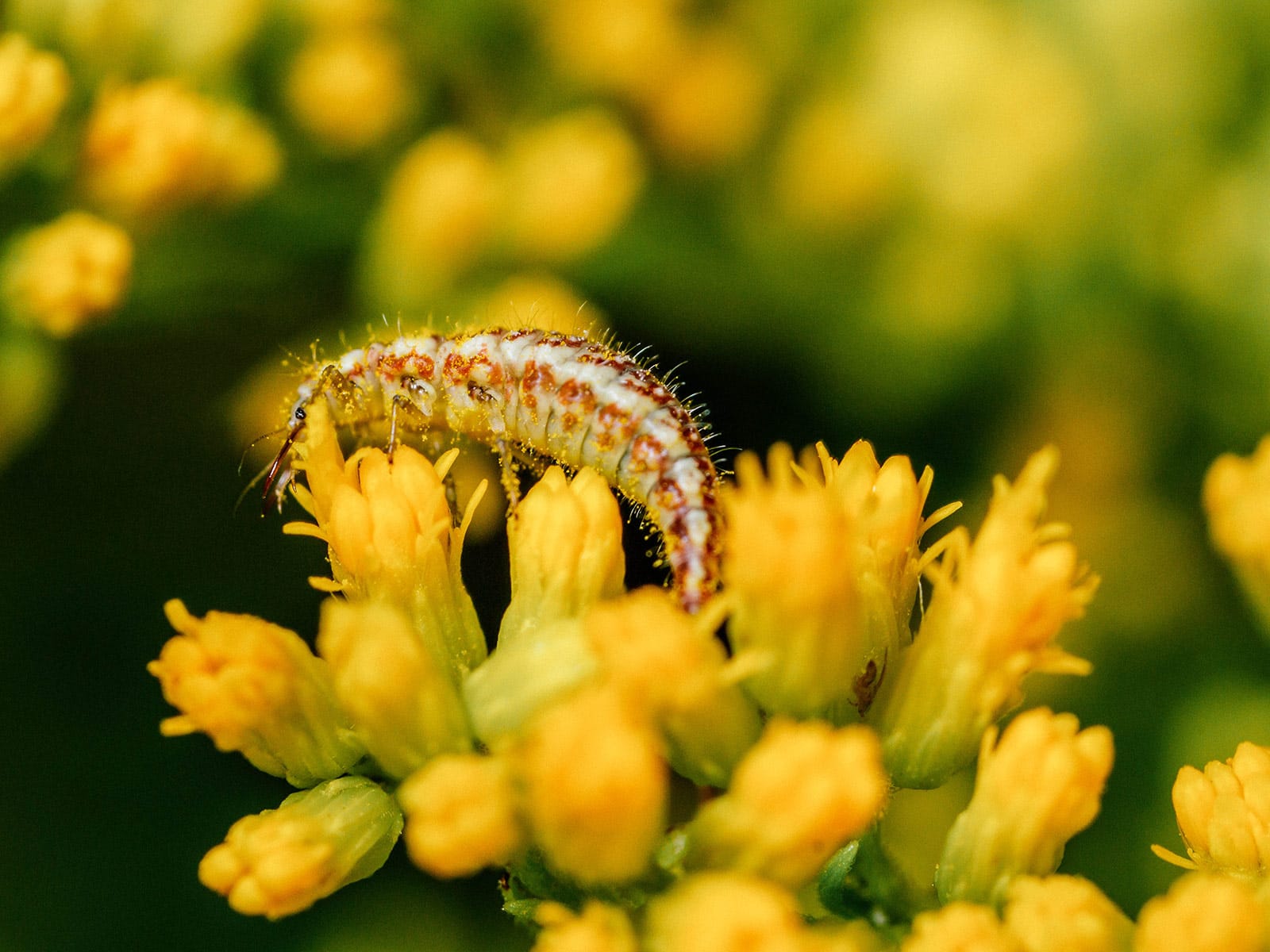

For individuals who see a paper wasp or yellowjacket nest near your yard, don’t be so quick to remove it. As long as the nest is a protected distance from the place you often buy and hasn’t grown too large, you’ll go away it to be an vital part of your ecosystem.
Go away parasitized hornworms alone
So now you’ve purchased full armies of lacewings, braconid wasps, and utterly utterly completely different predatory bugs feasting in your yard—hooray!
For individuals who see a hornworm in your tomato plant with tiny white “rice grains” hooked as rather a lot as its physique, go away it alone. It’s been parasitized by braconid wasps, and other people white elements are their cocoons.
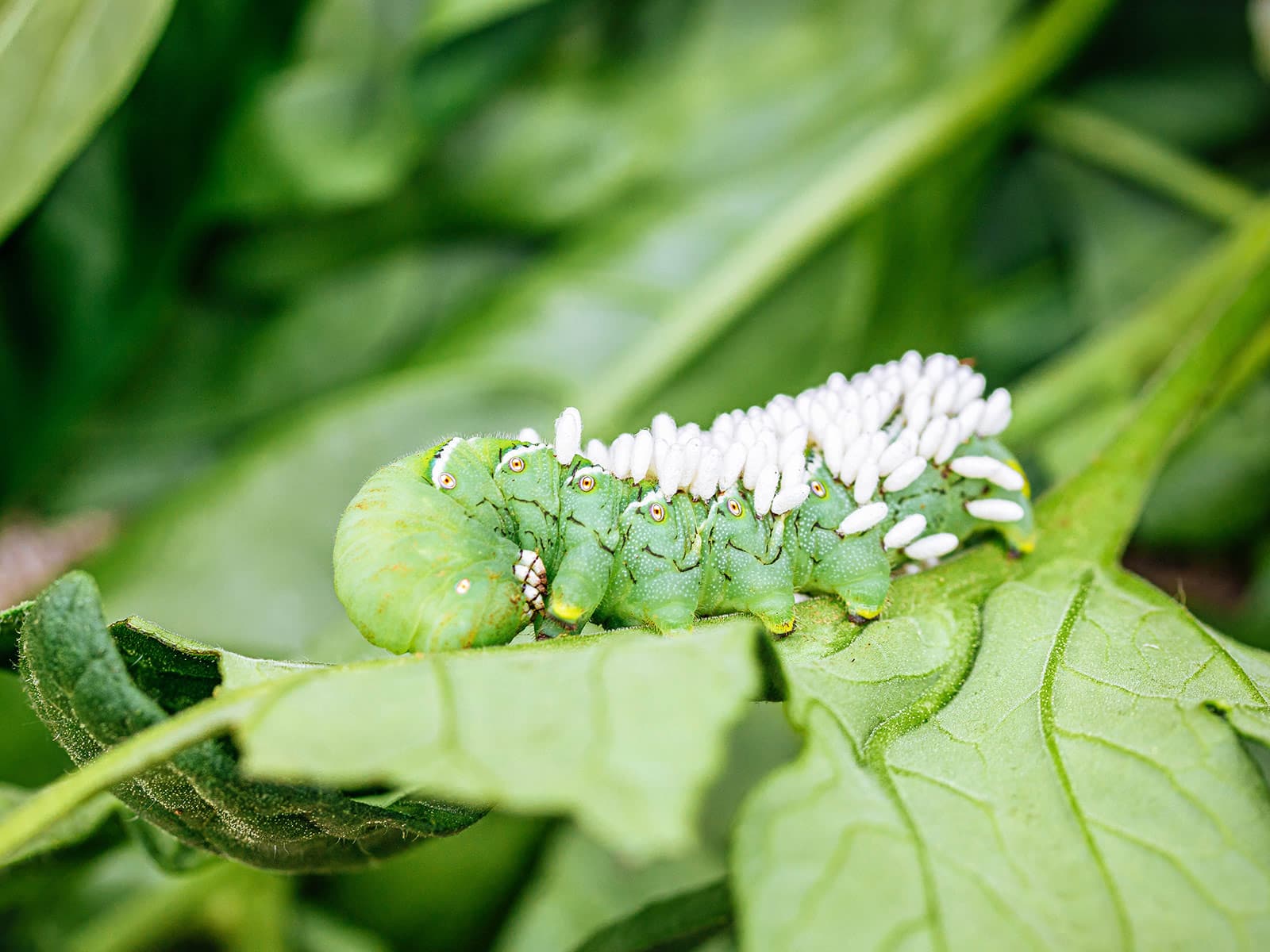

Additional wasps will hatch from these cocoons and proceed the cycle of attacking utterly utterly completely different hornworms as they feed and develop.
Develop flowering tobacco as a entice crop
Flowering tobacco (Nicotiana spp.) is a very fragrant flower that’s part of the nightshade family. Just some species are pretty participating and make a phenomenal addition to a flower yard.
Positively one among my favorites is Nicotiana sylvestris with its large leaves and clusters of white flowers that seem as if little bursts of fireworks. Moreover commonly known as white taking photos stars, the plant is a short-lived tender perennial that’s hardy to zone 10, nonetheless is so fast-growing that almost all people develop it as an annual.
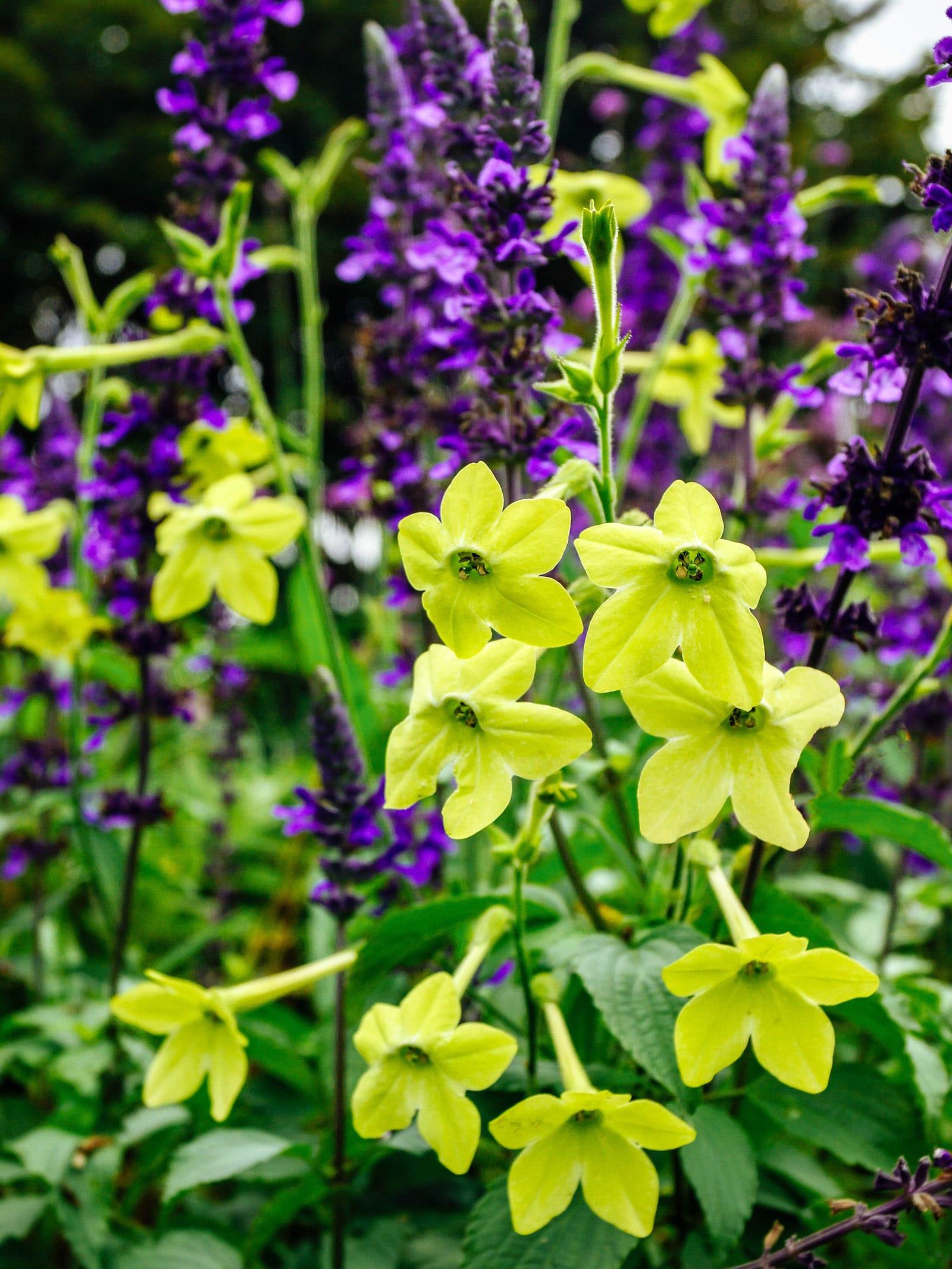

One utterly completely different favorite is Nicotiana alata ‘Lime Inexperienced’, which has long-lasting, trumpet-shaped chartreuse blooms. I actually like how the star-like flowers look when layered with hummingbird mint and salvia (which moreover attracts tons of pollinators).
The place to buy
Flowering tobacco
You can plant a patch of flowering tobacco as a entice crop, far-off out of your tomatoes and utterly utterly completely different nightshades. What makes them environment nice as a entice crop is that their flowers open at night (or by the use of the cooler parts of the day) and emit an gorgeous fragrance, attracting nighttime pollinators like sphinx moths.
Related: Surprising causes you actually want moths spherical in your yard
Sphinx moths will lay their eggs on Nicotiana crops, sparing your tomatoes from destruction. In midsummer after the first flush of flowers fades, scale back the crops by not lower than half their dimension.
Chances are it’s possible you’ll merely uncover pretty a few (or extra) hornworms lingering all via the leaves! Take away them the way in which by which you need. The crops will develop as quickly as additional and give you one utterly completely different spherical of sweet-smelling blooms.
